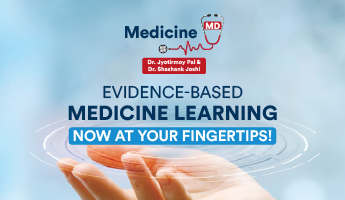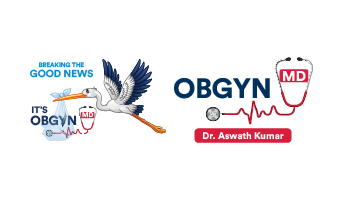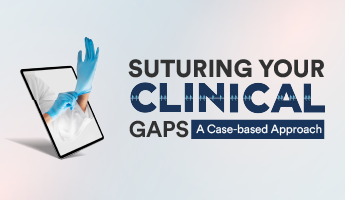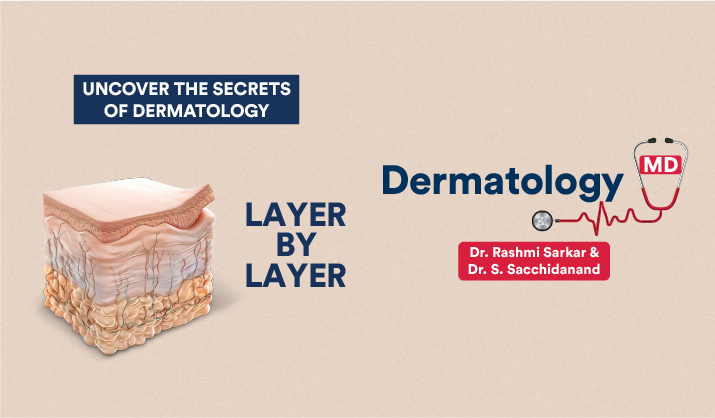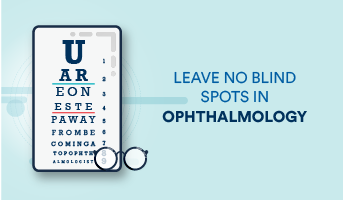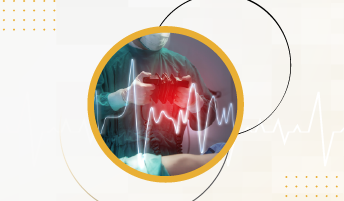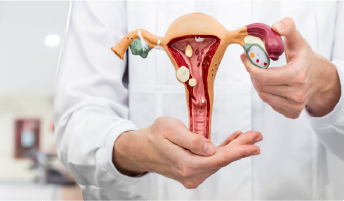E-Lecture Series Features


Video Lecture: 75+ Hours
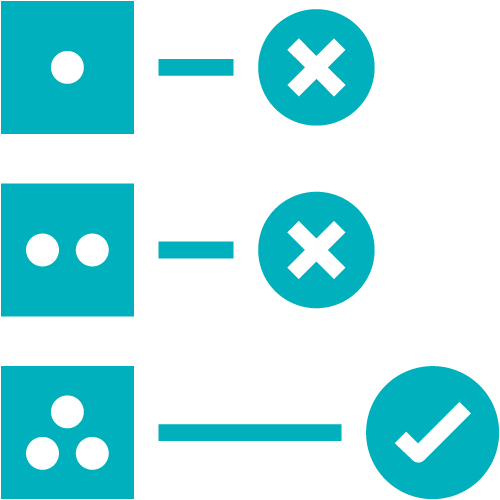

Benchmark Trials: 210+


Self-Assessment Questions: 590+


Topics in Videos & Notes: 110+


Spotters: 725+


Drug Chart


Dr. Wise AI Chatbot


Printed Notes Available*
About this E-Lecture Series
Dr. Rashmi Sarkar and Dr. S. Sacchidanand, the Chief Editors of Dermatology MD, have crafted the e-lecture series in collaboration with India’s 78 eminent faculties. Dr. Rashmi Sarkar is the Director Professor at LHMC, New Delhi with 23 years of teaching experience in premier medical institutes in the country, an academician and current President at IADVL who has empowered and mentored a large number of medical students and practitioners in IADVL work. Dr. S. Sacchidanand is an eminent dermatologist and health administrator with wide and varied experience. He is also the Chief Editor of the 4th and 5th editions of the renowned “IADVL Textbook of Dermatology”.
The Dermatology MD series that spans over 75+ hrs is a compilation of 110+ topics under 10+ modules that are important from an academic, clinical, and surgical point of view. All the topics in the series have been thoughtfully selected keeping in mind the frequently asked topics and pain areas of the postgraduate students for which they struggle to find sufficient information, such as dealing with skin lesions where there appears to be no explanation, exposure to rare diseases and exposure to medico-legal aspects.
This lecture series is one of the best PG Dermatology series for students who are aiming to perform exceptionally in the post-graduate exam. Its components rightfully meet the need of students in approaching important clinical problems and disorders, helping them to understand the community and social dermatology and perceive recent advances. It encourages concept-based learning to cater to all the learning needs of the students.
The concepts have been supported with benchmark/evidence-based studies. The cases have been discussed in detail with special emphasis on the clinical findings and complete workup on how to arrive at the right diagnosis. This online lecture series would also be beneficial for practitioners to gain clinical/surgical dermatological skills with the help of surgical videos incorporated along with animated sequences of various procedures. The in-video demonstration of the various surgeries being performed will give a whole new dimension to the understanding of the concepts.
The lectures are richly illustrated with clinical, histopathological and surgical images along with flowcharts, tables, and boxes, wherever necessary to aid students in developing a thorough overview of each topic, which will also fulfil their examination and clinical needs.
A dedicated section of spotters has been incorporated, encompassing all key clinical presentations and histopathological images within each topic, including rare cases in dermatology. This addition aids practitioners in recognizing significant lesions encountered during clinical examinations, while assisting postgraduates in consolidating their studies and familiarizing them with essential concepts. Furthermore, enhancements to the spotters feature now include questions, clinical cases, and images, elevating the educational experience to a more informative and interactive level.
Recent evidence-based recommendations have been included for various conditions to keep the students updated with recent advancements in the field. An interactive color-coded Drug formulary is incorporated as a part of the series to enable quick access to various drugs during their ward rounds. Important indications, contraindications, dosages, and common brand names have been included in this for all the major drugs. Regular engagement activities like Chat Shows, Journal Club, and recent updates will be a part of the series.
The Series Includes:
-
-
-
- Video Lectures: 75+ hours of video lectures supported by benchmark/evidence-based studies.
- Topics in Notes: 110+ well-illustrated notes which will act as a ready reckoner for students.
- Self-Assessment Questions: 590+ multiple choice questions have been included for self-evaluation.
- Spotters: 725+ clinical presentation/histopathological images within each topic, including rare cases in dermatology.
- Interactive Drug Formulary: Detailed color-coded drug formulary (based on drug safety) of commonly used drugs in Dermatology with easy searchability.
- Benchmark Trials: 210+ evidence-based studies/benchmark trials have been added to remain updated with recent advances in the field.
- Engagement Activities: Regular Chat Shows, Journal Club, and recent updates included with a panel of eminent faculty.
- Dr. Wise (AI Chatbot): The chatbot clarifies theoretical as well as practical concepts with the help of AI. It is a comprehensive and interactive solution provider integrated with authentic published resources like books, journals, notes, and videos to offer apt explanations of concepts, treatment modes and more.
- Printed Notes: Concise notes are designed to save time by providing exam-focused, crisp details along with visual learning at an affordable price. The notes also comprise previous years' questions and ensure comprehensive coverage in minimum time. Existing users can purchase the printed notes @3,495 from here.
-
-
3 Days Money Back Guarantee available T&Cs apply.
Dr. Rashmi Sarkar and Dr. S. Sacchidanand, the Chief Editors of Dermatology MD, have crafted the e-lecture series in collaboration with India’s 78 eminent faculties. Dr. Rashmi Sarkar is the Director Professor at LHMC, New Delhi with 23 years of teaching experience in premier medical institutes in the country, an academician and current President at IADVL who has empowered and mentored a large number of medical students and practitioners in IADVL work. Dr. S. Sacchidanand is an eminent dermatologist and health administrator with wide and varied experience. He is also the Chief Editor of the 4th and 5th editions of the renowned “IADVL Textbook of Dermatology”.
The Dermatology MD series that spans over 75+ hrs is a compilation of 110+ topics under 10+ modules that are important from an academic, clinical, and surgical point of view. All the topics in the series have been thoughtfully selected keeping in mind the frequently asked topics and pain areas of the postgraduate students for which they struggle to find sufficient information, such as dealing with skin lesions where there appears to be no explanation, exposure to rare diseases and exposure to medico-legal aspects.
This lecture series is one of the best PG Dermatology series for students who are aiming to perform exceptionally in the post-graduate exam. Its components rightfully meet the need of students in approaching important clinical problems and disorders, helping them to understand the community and social dermatology and perceive recent advances. It encourages concept-based learning to cater to all the learning needs of the students.
The concepts have been supported with benchmark/evidence-based studies. The cases have been discussed in detail with special emphasis on the clinical findings and complete workup on how to arrive at the right diagnosis. This online lecture series would also be beneficial for practitioners to gain clinical/surgical dermatological skills with the help of surgical videos incorporated along with animated sequences of various procedures. The in-video demonstration of the various surgeries being performed will give a whole new dimension to the understanding of the concepts.
The lectures are richly illustrated with clinical, histopathological and surgical images along with flowcharts, tables, and boxes, wherever necessary to aid students in developing a thorough overview of each topic, which will also fulfil their examination and clinical needs.
A dedicated section of spotters has been incorporated, encompassing all key clinical presentations and histopathological images within each topic, including rare cases in dermatology. This addition aids practitioners in recognizing significant lesions encountered during clinical examinations, while assisting postgraduates in consolidating their studies and familiarizing them with essential concepts. Furthermore, enhancements to the spotters feature now include questions, clinical cases, and images, elevating the educational experience to a more informative and interactive level.
Recent evidence-based recommendations have been included for various conditions to keep the students updated with recent advancements in the field. An interactive color-coded Drug formulary is incorporated as a part of the series to enable quick access to various drugs during their ward rounds. Important indications, contraindications, dosages, and common brand names have been included in this for all the major drugs. Regular engagement activities like Chat Shows, Journal Club, and recent updates will be a part of the series.
The Series Includes:
-
-
-
- Video Lectures: 75+ hours of video lectures supported by benchmark/evidence-based studies.
- Topics in Notes: 110+ well-illustrated notes which will act as a ready reckoner for students.
- Self-Assessment Questions: 590+ multiple choice questions have been included for self-evaluation.
- Spotters: 725+ clinical presentation/histopathological images within each topic, including rare cases in dermatology.
- Interactive Drug Formulary: Detailed color-coded drug formulary (based on drug safety) of commonly used drugs in Dermatology with easy searchability.
- Benchmark Trials: 210+ evidence-based studies/benchmark trials have been added to remain updated with recent advances in the field.
- Engagement Activities: Regular Chat Shows, Journal Club, and recent updates included with a panel of eminent faculty.
- Dr. Wise (AI Chatbot): The chatbot clarifies theoretical as well as practical concepts with the help of AI. It is a comprehensive and interactive solution provider integrated with authentic published resources like books, journals, notes, and videos to offer apt explanations of concepts, treatment modes and more.
- Printed Notes: Concise notes are designed to save time by providing exam-focused, crisp details along with visual learning at an affordable price. The notes also comprise previous years' questions and ensure comprehensive coverage in minimum time. Existing users can purchase the printed notes @3,495 from here.
-
-
3 Days Money Back Guarantee available T&Cs apply.
See Less...Content
Orientation to Dermatology MD
Growth and Development of Skin and Its Functions
Skin and Its Interaction with Environment
Anatomy and Embryology of Epidermis
Anatomy of Dermoepidermal Junction and Dermis
Anatomy of Hair and Nail
Atopic Dermatitis
Contact Dermatitis
Seborrheic Dermatitis
Photodermatoses
Prurigo Nodularis: Management
Prurigo nodularis: Management
Pruritus and Prurigo and Their Management
Occupational Dermatoses
Nummular Eczema, Lichen Simplex Chronicus
Etiopathogenesis of Psoriasis
Pityriasis Rubra Pilaris
Parapsoriasis and Pityriasis Lichenoides
Pityriasis Rosea
Lichen Planus and Lichenoid Disorders
Management of Psoriasis
Hypopigmentation and Hyperpigmentation Disorders
Hypopigmentation and hyperpigmentation disorders
Albinism and Genetic Pigmentation Disorders
Erythema Multiforme, Stevens–Johnson Syndrome, and Toxic Epidermal Necrolysis
Pemphigus
Paraneoplastic Pemphigus
Bullous Pemphigoid
Mucous Membrane Pemphigoid
Epidermolysis Bullosa Acquisita
Dermatitis Herpetiformis
Inherited Epidermolysis Bullosa
Lupus Erythematosus
Dermatomyositis
Systemic Sclerosis
Morphea and Lichen Sclerosus
Psoriatic Arthritis and Reactive Arthritis
Role of JAK Inhibitors in Dermatology
Relapsing Polychondritis
Acne and Acneiform Eruptions
Acne and Acneiform Eruptions
Rosacea and Related Diseases
Disorders of Eccrine and Apocrine Glands
Non-scarring Alopecia
Scarring Alopecia
Hirsutism and Hypertrichosis
Nail Dermatoses
Dermal Hypertrophies
Serology in Connective Tissue Disorders
Panniculitis
Lipodystrophies
Disorders of Oral Cavity and Mucosa
Premalignant Conditions of Skin
Squamous Cell Carcinoma and Basal Cell Carcinoma
Vascular Tumor and Malformations
Malignant Melanoma
Primary Cutaneous Lymphomas
Mastocytosis
Histiocytosis
Skin Changes in Diabetes Mellitus and Endocrine Diseases
Skin Changes in Systemic Diseases and Cutaneous Markers of Internal Malignancies
Sarcoidosis
Metabolic Disorders: Acquired
Metabolic Disorders: Inherited
Nutritional Disorders of Skin
Raynaud's Phenomenon
Raynaud’s Phenomenon
Chronic Non Healing ulcers: How to Optimise Healing
Chronic Non-healing Ulcers: How to Optimize Healing
Vasculitis
Sclerotherapy: Role in Dermatology
Neutrophilic Dermatoses
Mycobacterial Skin Infections
Leprosy: Disability and Rehabilitation
Superficial Fungal Infections
Deep Fungal Infections
Leishmaniasis and Other Protozoal Infections
Scabies, Pediculosis, and Other Infestations
Bites and Stings
Human Herpes Virus Infections
Leprosy- Basic Dermatology
Leprosy
Syphilis
Chancroid
Lymphogranuloma Venereum
Granuloma Inguinale (Donovanosis)
Cutaneous manifestations of COVID 19
Principles of Topical Therapy in Dermatology
Glucocorticoids
Retinoids
Topical Antibacterials
Systemic Antibacterials
Management of Lepra Reactions
Antifungal Agents
Cytotoxic and Antimetabolic Agents
Cytotoxic and Anti-metabolic Agents
Antiviral Drugs
Molecular Targeted Therapies
Anti-angiogenic Agents
Antiangiogenic Agents
Sunscreen in Dermatology
Management of Chronic Urticaria
Perioperative Considerations in Dermatologic Surgery
Perioperative Considerations in Dermatological Surgery
Laser Hair Reduction
Laser hair reduction
Management of Keloids
Excisional Surgery and Repair, Flaps, and Grafts
Laser and Light-Based Treatments: Hair Removal Optimisation
Laser and Light-Based Treatments: Qs Nd YAG- Basics, Pearls and Indications
Laser and Light-Based Treatments: Energy Based Devices- Scars and More
Surgical management of Vitiligo
Noninvasive Body Contouring
Chemical Peeling
Microneedling
Evolution of Liposuction: Manual-Powered-Laser
Fat Transfer
Surgical management of acne scars
The journey of resurfacing: From manual to Lasers and EBDS
Botulinum Toxin in Dermatology
Drug Chart
Herpes
Pigmentation Disorders of Facial Skin and Melasma
Discussion on Alopecia Areata
Chief Editors
We aim to bring you the best of content from the eminent faculties.
Money Back Guarantee
You are not entitled to cancel the subscription at any stage. However, we may run specific campaigns having money back guarantee from time to time. Users who have already bought/taken trial/ redeemed the same product before the start of the campaign, will not be eligible for money back under such campaigns.
- The Dermatology MD money back guarantee begins from 23rd February 2023.
- The offer is applicable on Dermatology MD course only.
- The campaign offers a 3 days money back scheme that can only be leveraged by the new users. Here “new users” are addressed to only those users who have purchased the course under the prevailing offer. 3 days money back benefit cannot be availed by users who have either purchased, redeemed, or taken a trial of the same course before making the purchase.
- Refund for No Cost EMI transactions will be processed post deduction of EMI Fee.
- The refund will only be initiated after receiving the request within 3 days from date of purchase over email marketing@diginerve.com. Refund will be initiated to the original payment source within 5 working days.
- We reserve the right to decide the eligibility of all claims made under money back scheme and approve/disapprove all such claims based on terms and conditions. Our decision will be final and binding in all cases.
- Money back is not applicable on No Cost EMI.

